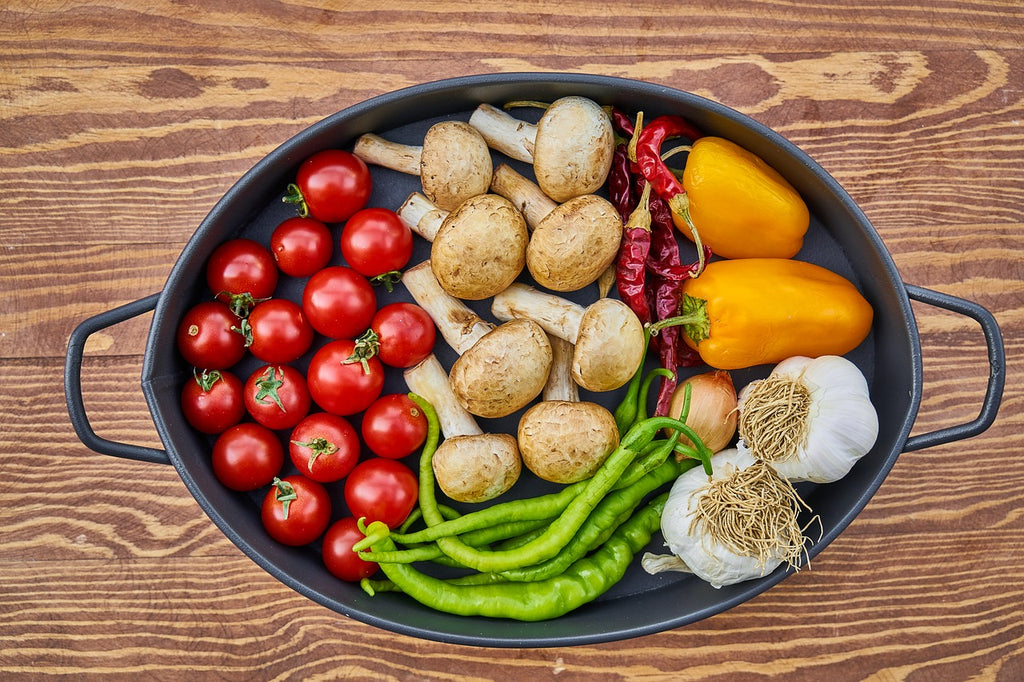Recent Posts
-

- Diabetes-Friendly Nutrition: Smart... 08.12.2024
-

- Nutrition for Chronic... 08.12.2024
-

- Anti-Inflammatory Diet: Food... 08.12.2024
-

- Low-Sodium and Heart-Healthy:... 08.12.2024
-

- Plant-Based Diets for... 08.12.2024
Why Is Organic Food Getting More Popular In Singapore

There is no part of our global village that is not concerned about the consequences of our the polluted environment and unsustainable living. We are spoiling our own nest, as the saying goes, and are living like there is another planet waiting for us to move to when we use all resources available to us. We are already experiencing the effects of stressful lives and unhealthy diet and people are increasingly reacting by making healthier choices. One option available is organic food.
Organic food popularity grew steadily since the 70’s, as a reaction to increasing use of agricultural chemicals – pesticides, herbicides and synthetic fertilizers. The trend became worldwide, and grew to take over significant portion of the worldwide food market. Starting in countries like the USA, Canada, Australia and the EU, it slowly but steadily became a worldwide phenomenon.
Singapore has always been a trendsetter in Asia, whether it is for a fashion, music or food. Organic food is now widely available in Singapore, there are a number of suppliers, and organic food from all over the world is available in local stores.
The majority of consumers of organic food in Singapore are expats and tourists. As for the local population, the first organic food consumers were those who were introduced to it while travelling or studying abroad, in the USA, Europe or Australia. Once back home, they demanded the kind of unpolluted, pesticide-free food they got used to, and the market responded. They belong to the middle to high income bracket and are between 26 and 50 years old, in most cases well educated.
Most organic food consumers in Singapore choose the organic lifestyle because of their concern for their health. The second reason is the awareness of the damage traditional agriculture is doing to the environment through the use of toxic chemicals to increase the production. Finally, many are opting for paying more for organic food because it is a hip thing to do, and Singaporeans are very fashion-conscious and sensitive to trends.
Great boost to the popularity of organic food in Singapore was the big media awareness health, especially organic food campaign, created by the government. People from all walks of life are now aware of the difference between organic and non-organic food and about the benefit of eating food without residues of agricultural chemicals. Whether they will make the switch, depends very much on the price difference, which is still significant .
Economic crisis affected the organic market all over the world, because people were forced to make some tough choices, and organic food in many cases became a luxury. But, since organic consumers in Singapore are from the higher economic segment of the society, the financial crisis did not have such effect as in the countries like the USA, where organic food consumers are from any income group.
Singapore still imports almost all its organic food. There is no organic certification program and there is very little organic food grown locally. Although the imported organic food comes with the label ‘organic’, the consumers depend on the certification system established, if it exists, in the countries of import. It is expected that the popularity of organic food in Singapore will greatly increase once the local organic certification system is established. It would significantly increase the confidence of consumers in the quality of organic food. If paying more for unpolluted organic food, people want to be sure that they are getting the real thing.





